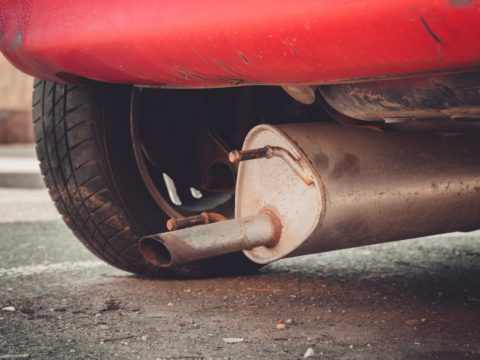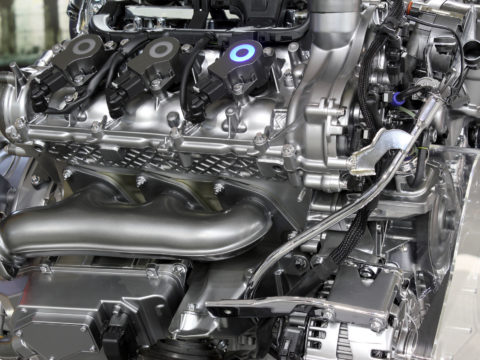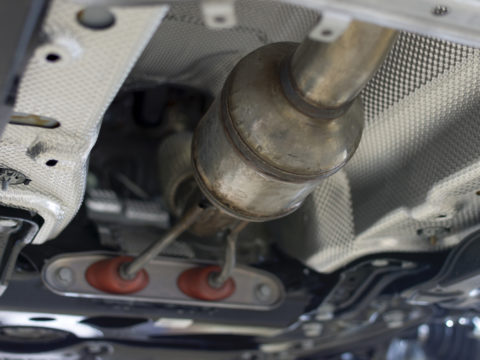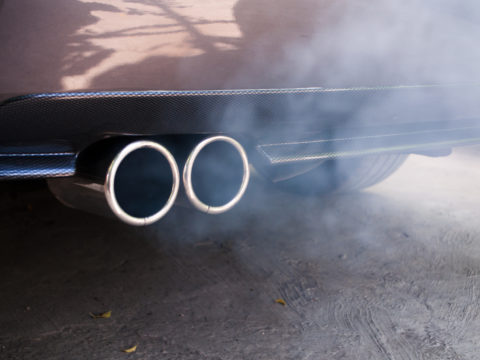If you have noticed water coming out of your exhaust pipe, you may wonder if it is a cause for concern. In most cases, water coming out of the car is normal, but there are some situations in which it may be hazardous.
In most cases, water coming out of the tailpipe means that combustion is taking place in the engine just as it should. If you see an excessive amount of water coming out of the tailpipe, this may mean that you have piston failure, which can be very dangerous.
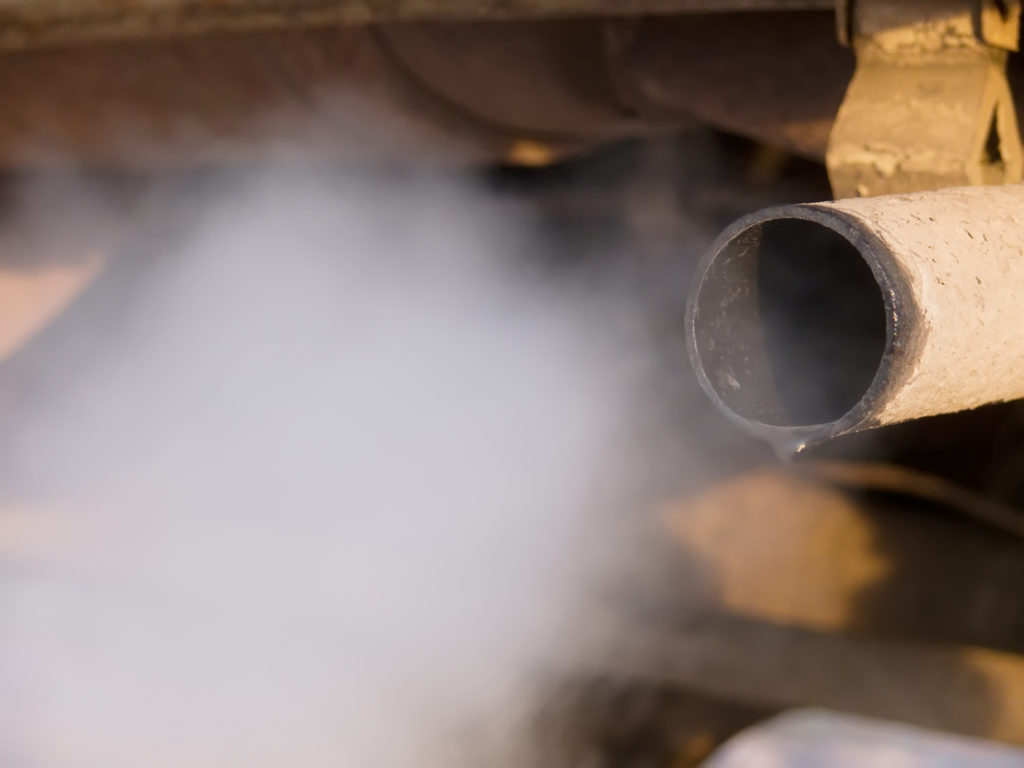
Where is the Water Coming From?
Generally, water coming out of a car is caused by the car’s vapors. When a vehicle cools, vapors condense and will become water.
Water dripping from a car’s exhaust pipe is normal. When a vehicle is driven, an invisible vapor is produced. When a car shuts off and has a chance to cool down, that vapor condenses and becomes water, and some of it will come out of the tailpipe.
5 Possible Causes of Water Coming Out of the Exhaust Pipe
They are a few different reasons water might come out of an exhaust pipe. Most of them are completely normal and harmless.
1. Your Catalytic Converter is Working Properly
The catalytic converter produces water when it is working. The job of a catalytic converter is to reduce the amount of pollution that a car emits. It turns carbon monoxide into less harmful carbon dioxide. Water vapor is produced when the converter works, and some water may leak from the tailpipe.
This is certainly no cause for concern. It means your car is doing what it is supposed to do.
2. Your Car is Cooling Down After a Long Drive
When you drive for a while, your car will produce vapors that come out of the tailpipe. This is what the tailpipe is there for. When the car cools down, the vapors emitted from the tailpipe will condense into water. This is not a cause for concern at all.
3. Heat Condensation
When it is cold outside, you have to warm up your car before you go anywhere. Excessive exhaust will come out of your tailpipe if you do not warm up your car correctly. That vapor will cause condensation, and water will come out of your tailpipe. You should let your car run for a minute or two to avoid this problem.
Some people will allow their car to idle for a long time before driving in the winter to avoid this problem and get better fuel economy. This is not necessary and will only be worse for the environment.
4. Starting Your Car Normally
When you start your car, a combination of water and carbon dioxide forms. When the engine cools, the exhaust gasses will leave the combustion chamber. Those gases will condense into liquid, and some of it will come out of the exhaust pipe. This is entirely normal.
5. There is Something Wrong with Your Pistons
Although some water production is normal, there are some circumstances when it is a cause for concern. If the pistons in the engine fail, you will see smoke and water coming out of the car. In some cases, you may notice a burning smell. If this is the case, you will want to take your vehicle to the mechanic immediately.
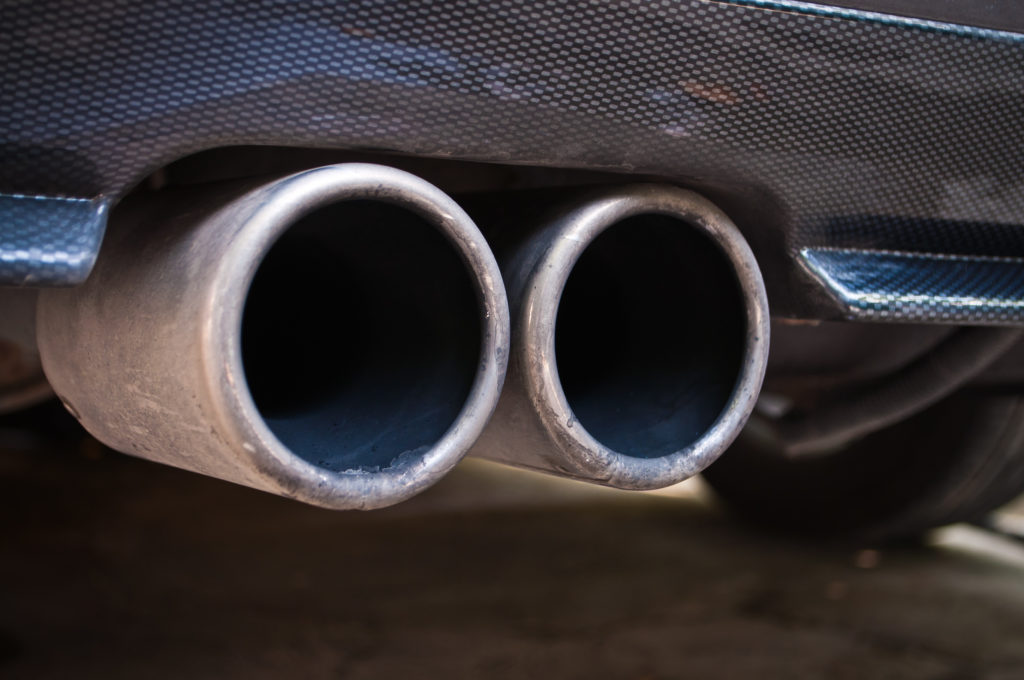
What are Pistons and How Do They Work?
Pistons are an essential component of the reciprocating internal combustion engine.
A piston is a metal cylinder that goes up and down inside of an engine block. It has three rings: a compression ring, a wiper ring, and an oil ring. Pistons are generally made from aluminum, and the rings are made from steel. The piston is connected to a rod, which is attached to the crankshaft. They work together to make the wheels of the crankshaft turn.
Vehicles with an internal combustion engine, such as motorcycles, have only one cylinder and one piston. Most cars contain four to six pistons, but some have as many as 12.
As pistons go up and down, the oil ring takes oil from the cylinder. Eventually, that ring will become worn down and will not remove the oil properly. When this happens, oil will get into the combustion chamber, which can cause smoke and water to come out of your engine.
What Should You Do If You Notice an Exhaust Abnormality?
If you notice that your car is leaking an abnormal amount of exhaust, and You have warmed up your vehicle correctly on a cold day, You should take it to the mechanic. Chances are, there is something wrong with the pistons in your car.
Getting the Pistons Replaced in Your Car
Replacing pistons is intrinsic work and is best handled by a professional mechanic. If you do it incorrectly, it can cause permanent damage to your engine. The pistons must be carefully put into cylinders, or the crankshaft might be scratched.
How Much Does Piston Ring Replacement Cost?
Piston rings cost between $30 and $150, but the labor cost much more. It is about a 10-hour process, and professional mechanics generally charge anywhere from $100 to $200 an hour. The entire job can cost between $1200 and $2300. If you have an older car, you may want to consider replacing it.

